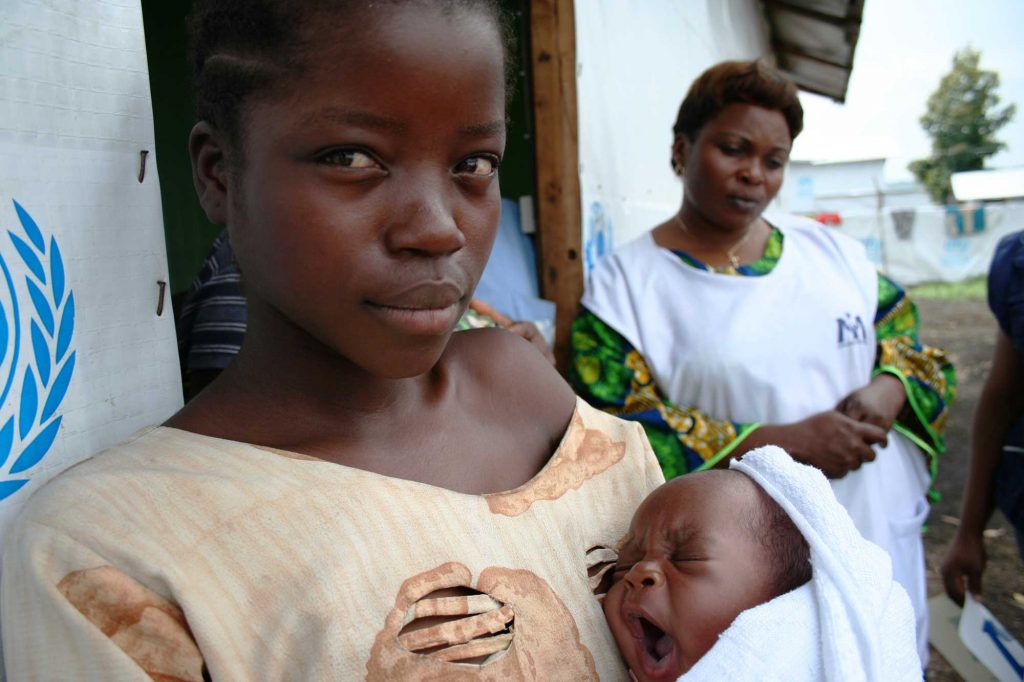Traditional breastfeeding practices in Kenya have been ingrained in the culture for generations and prove difficult to change. Many women in rural Kenya believe breast milk is not sufficient for a baby’s nutrition and complementary foods, such as porridge, are given to babies early in their development. Other long-held myths and peer pressure from mothers permeate traditional communities in Kenya.
“There are a lot of practices and beliefs that surely don’t transform to a healthy life,” says Emi, a mother of three and community health volunteer for International Medical Corps. Emi gave food to her first baby after he was born because it was tradition; it was the only way she knew. She says her first born was often sick, and she remained unaware that his illness could have been due to not practicing exclusive breastfeeding.
Both cost-effective, readily available and ideal for child nutrition, exclusive breastfeeding for the first six months of life is a vital first step in reducing undernutrition in children. Because of this, the World Health Organization estimates that deaths of children younger than five years old would be reduced by 13 to 20 percent worldwide if babies were breastfed exclusively (i.e. no other food or drink) for the first six months of life and then up to two years or longer with complementary feeding starting at six months of age.
Kenya’s Ministry of Health reported in 2014 that of the 1.5 million babies born each year in Kenya, only 500,000 are exclusively breastfed, meaning that over 1 million children are exposed to risks of malnutrition and increased illness every year. The Kenyan government further reports that it has the third lowest breastfeeding rate in all of Africa.
Emi says that she has often witnessed mothers giving newborn babies unpasteurized cow’s milk before even trying to breastfeed “sometimes up to two days before the child is breastfed!” After receiving training as a community health volunteer by International Medical Corps, Emi has learned to embrace healthy breastfeeding and child feeding practices. Now, Emi leads six mother care groups – peer-to-peer groups of mothers with young children – in her community and encourages other mothers to pass on these lifesaving messages.
Emi trains her mother care groups using her personal experience. She exclusively breastfed her second and third children and she says, “There was a big difference, my first-born was sick most of the time and that was really hard for me, while the other two didn’t give me much trouble and they rarely got ill. They seem brighter and more active than my first-born.”
It is women like Emi who are making critical changes in the overall nutrition, health and well-being of children in Kenya’s rural communities. She is an advocate for exclusive breastfeeding and calls on local leaders to discourage these unhealthy cultural practices. She says, “I am passionate about helping my community abandon these practices that are dangerous in our lives.”
